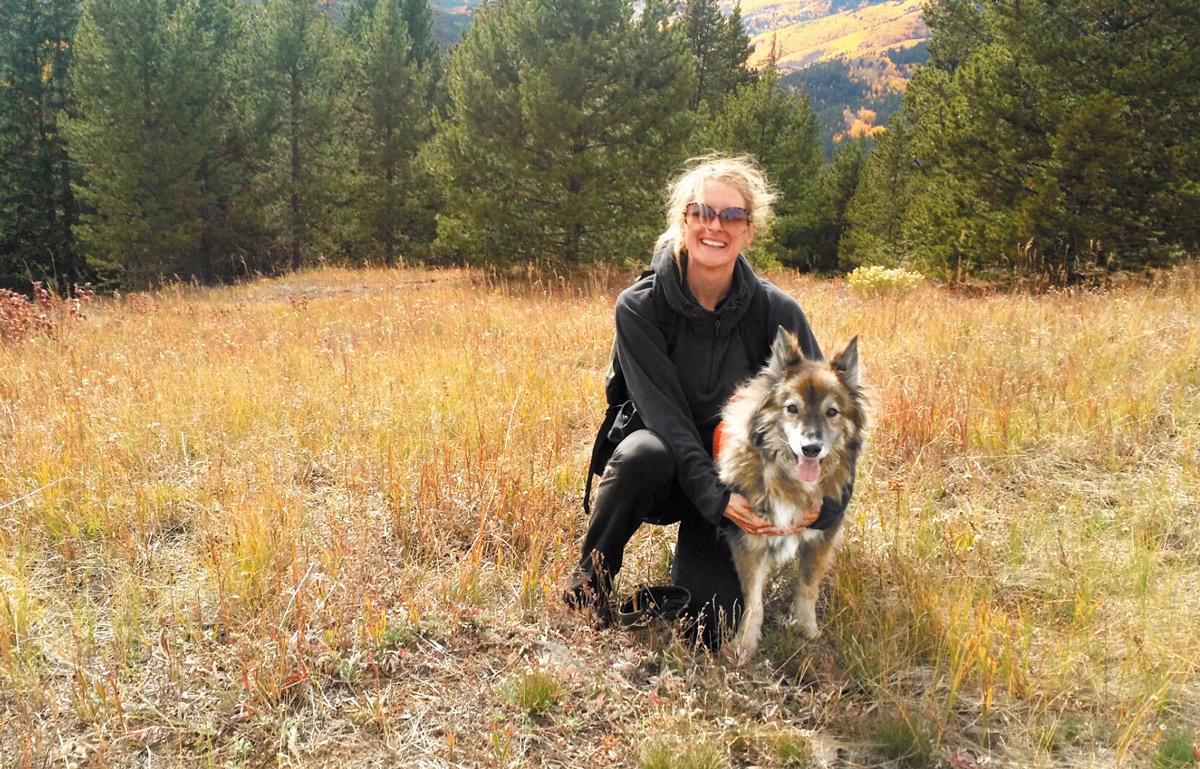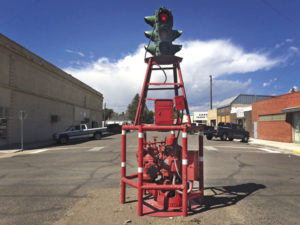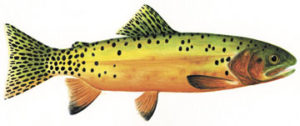
By Martha Quillen
Everything I ever really needed to know I could have learned from my dog. But for some reason I didn’t realize how smart he was until after he was gone. Bodie died last month (with a jolt of assistance from the vet). He’d started getting sick about three months earlier, and the vet prescribed an antibiotic.
At that point, I was working on my house with the idea I’d either sell it, rent it or take in roommates. My older daughter visited in June and we cleaned out cupboards, the shed and half the cellar, and held a garage sale. And although Bodie had seemed a little under the weather before she came, he gleefully ran miles with her everyday.
My younger daughter and her family came in early August and we carted loads of stuff to Caring and Sharing, sold and donated hundreds of books, cleaned walls and carpets, packed crates with things we deemed worthy of saving and started painting.
By then, Bodie had quit eating. He’d lost twenty pounds and blood tests showed his liver was failing. During his last days, Bodie sometimes stood up and fell right over, Then one night he started dry-heaving and choking, and I thought, “This is it.” And I made a final appointment with the vet.
Bodie was rescued alongside a highway in New Mexico when he was about five months old, and was so skinny and tick-ridden he spent two months in a veterinary clinic. A family tried taking him home, but when left alone Bodie howled more vociferously than a entire canyon full of coyotes. So someone suggested Ed take him, because Ed worked at home.
At first Bodie was a wild thing – a rambunctious, high-speed, tail-chasing fool – but he settled down and became a pretty well-behaved dog after four or five years. Bodie lived twelve years and ten months, and I figured we’d been lucky.
But his loss threw me. Bodie was gone, and I was left here in Central Colorado where I’ve spent the past forty years entirely wrapped up in Colorado history, politics, lore, legends and lifestyles – which no longer seem particularly relevant or useful.
For a long time, knowing Colorado facts and fiction was my job. I was copy-editing for writers and publications in places where stories about natives, the land and the past were sacrosanct. That was especially true in Grand County, the ranching community where Ed and I edited a newspaper before coming to Salida.
Now, with Bodie gone, I feel as if I’ve come to the end of the trail as surely as he did. Because whether I stay in Chaffee County or leave, the old Colorado I studied is gone. And the place that’s now evolving? I don’t have any vision for it. After years of following local developments, water issues and political impasses, I have no idea what will be good for this place.
And sometimes I worry that nobody else does either.
In Salida, there’s a lot of talk about letting the experts handle things. But who’s really an expert? Government officials aren’t experts on everything. They don’t study a particular community’s ditches, utilities, streets, laws or history in college. Those are things you learn in the field – and city administrators have better places to be (and they also have advisers).
But when advisers, councils, administrators and political leaders disagree? Citizens pick a side and support it, but that seldom works, because political partisans tend to be hostile and non-co-operative. So instead of improving the Affordable Care Act, one side wants to save it and the other wants to kill it. And instead of ensuring that the Natural Resources Center Development Corporation building is well maintained, opposing factors argue about what does and doesn’t need to be done.
When I first attended meetings in rural Colorado, a lot of rural residents kept track of every law and movement their state legislature made, and every stream, ditch and adjudication that affected them. They really were experts. But now, citizens know water comes from a tap, and heat and light from utility companies, and not much more.
Learning enough to wisely deliberate on public policy is time-consuming and never-ending, because water usage, infrastructure, laws and circumstances change all the time. So today, only a handful of experts know enough to advise the public, and they inevitably have special interests of their own.
At this point, it’s unclear how modern, democratic citizens (who tend to be better-educated than their forebears, but less familiar, knowledgeable and technologically adept about all the machinery and processes that shape their world) can oversee public business. But politics have always been a big part of my life and livelihood, and I don’t think I can or should just give them up. Besides, ceding authority to hotshots doesn’t work; the 2008 collapse showed how well the financial industries police themselves; and Deepwater Horizon proved how inept drilling experts can be.
Yet curiously enough, I was feeling better about politics during Bodie’s last weeks. I had been reading a lot of material about non-partisan efforts to address specific problems – such as reducing mass incarceration and improving schools – and was encouraged by the outcomes. But then a book I’d ordered months before Bodie got ill (when I was attending a grief support group) arrived: Option B by Sheryl Sandberg and Adam Grant.
Grant is a Wharton professor and psychologist, and Sandberg is a former Google executive, who’s now the chief operating officer of Facebook. She’s also the author of Lean In, a bestseller about how women can rise to the top in business. Option B: Facing Adversity, Building Resilience, and Finding Joy is a self-help book about recovery and “post-traumatic growth” written after Sandberg’s husband died.
You would think a book with that subtitle would be uplifting. But as I read it, I found myself getting seriously depressed, about politics, life and the very nature of our society. The first three chapters and the last tell Sandberg’s story and offer some reasonable advice for the bereaved. But the middle? It wanders into a whole new genre by consolidating a grief handbook with a motivational management and leadership manual.
[InContentAdTwo] Option B champions a relentless do more, try harder, and you can turn your grief around and come out on top scenario that’s exhausting just to read about. It prompts mourners to seize the opportunity, take back the joy, bounce forward, rebuild their self-confidence, and learn how to love and triumph again, which all sounds good, until she names dozens of famous people – including authors, athletes, billionaires and philanthropists who have financed foundations, started charities, saved children and rescued the downtrodden.
With every chapter I felt worse. I finished painting four rooms, but thought it should be ten. I washed walls, moved furniture and scrubbed floors, and knew the people in Sandberg’s book would have finished at least two Habitat for Humanity homes, single-handedly, while donating a million dollars to build more.
“I can’t,” I thought. “You can,” they prodded. And I wished I had my dog back, because he loved me no matter what.
I found Sandberg’s competitive striving and name-dropping advice disturbing, perhaps because I’d just finished reading The Broken Ladder by Keith Payne, the book I wrote about last month. Payne’s book is about how inequality and status affect “the way we think, live, and die.” In it, he cites a study in which university researchers remove high status, dominant monkeys from a group, and the stress responses of the middle-management monkeys decrease and the whole band fares better. Payne contends that hierarchical patterns based on power and dominance evolved to ensure that ruthless leaders could protect primitive nomads from predators. But now such hierarchies increase stress, blood pressure, inflammation, chronic illness and anti-social behavior in our entire population.
Last week I was telling my daughter how perfect Bodie was: so sweet and gentle, a lover of people, kids, dogs, and even some cats …. And she laughed. “Mom,” she said, “Bodie was one of those movie-star sort of dogs: wild, willful and almost impossible to train.” Then she reminded me of Bodie’s youth, when he shared traits with the destructive Marley and doofus Beethoven. In his adolescent glory, Bodie ate the entire back seat in my car and the seat belts and pulled all of the trim out of the cabover on Ed’s truck.
Once, we climbed to the top of Tenderfoot and were admiring the view, when Bodie noticed the traffic on F Street, pulled loose and raced downhill trailing his leash behind him. He was still chasing cars up and down the main street with a cadre of people chasing behind him when we finally got down thirty minutes later.
Bodie required three obedience courses before he settled down. But he did settle down. He quit trying to run faster than a speeding Porsche and catch every car in sight, and eventually quit trying to outpace his pack members and decided to run with them. I wonder if that’s because dogs are innately smarter than great apes.




